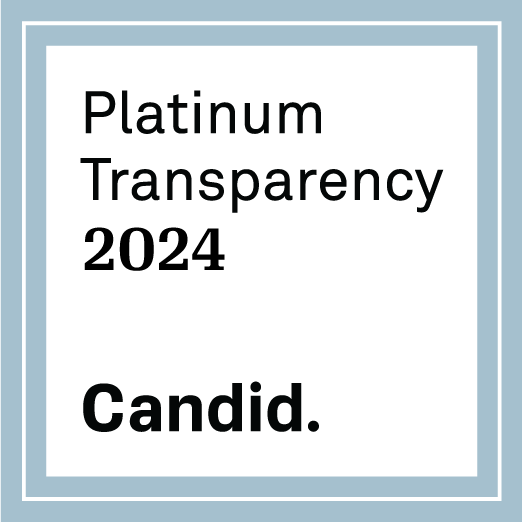|
Categories
Categories
All
Archive
Archives
July 2024
|
In our last newsletter, we shared that our team is closely tracking the IRS’s proposed regulations concerning donor-advised funds, issued in November 2023. Certainly these regulations are just “proposed”; it is unclear whether and to what extent they will become final.
If you routinely read financial publications, you may have seen articles about these proposed regulations and speculation about what they might mean for charitable planning. At this point, it is anyone’s guess! You can rest assured that the Community Foundation team is on top of the issues, and we will update all of our fund holders as more information becomes available. Indeed, you may have seen the news that the IRS has scheduled public hearings on the proposed donor-advised fund regulations, set for May 6, 2024, so it’s not likely we’ll hear anything definitive for several months. In the meantime, you might enjoy reading up on donor-advised funds and the many ways they can help grow philanthropy. The Donor Advised Fund Research Collaborative’s recently-released study of donor-advised funds is full of statistics and insights about the popularity of donor-advised funds and how they help grow philanthropy. We’ll keep you posted! This article is provided for informational purposes only. It is not intended as legal, accounting, or financial planning advice. At the Community Foundation, we are honored to work with generous individuals and families like so many of you who’ve established funds to support the causes you care about and the needs of our community both now and in the future. We’re also inspired by those of you who are getting to know the Community Foundation and considering establishing a donor-advised or other type of fund.
Wherever you are in the stages of your philanthropic planning, the team at the Community Foundation is here for you and considers our relationship to be personal. That’s why we welcome the opportunity to meet with our fund holders and prospective fund holders. Here are a few insights into what those meetings are all about. You can expect personal, dedicated service. Unlike financial institutions' donor-advised fund platforms where access to a dedicated donor services team can be rare, the staff at the local Community Foundation is here to help you every step of the way along your charitable giving journey. Our team is happy to meet with you one-on-one, and we are also happy to join a meeting with you and your legal, tax, or financial advisor to assess your current situation and determine the best charitable tax strategy for you. This includes evaluating the best assets to give to your fund or funds at the Community Foundation, including publicly-traded stock and even other noncash assets such as real estate or closely-held stock. We care about your intentions for your fund. The team at the Community Foundation wants to understand the areas of interest that are a priority for you, whether that’s the arts, health care, social services, the environment, education, community development, or something else. We also want to understand the role you envision for the successor advisors you’ve named in the fund documentation, such as your children, who will make decisions about the fund when you are no longer living or able to manage the fund yourself. We will help you establish additional funds to meet your goals. Sometimes when the team at the Community Foundation is working with a fund holder to understand the intentions for a donor-advised fund, we discover that it’s worth adding one or more additional funds to complement the donor-advised fund structure already in place. For example, some fund holders decide to also establish a designated fund for a particular nonprofit organization or an unrestricted fund to support the Community Foundation’s mission in perpetuity. Many times, fund holders decide to make recurring contributions over time to multiple funds at the Community Foundation to achieve their various philanthropy goals. We make the paperwork a breeze. As you know if you’ve already established a donor-advised fund at the Community Foundation, the paperwork is straightforward and not at all cumbersome. As we’re exploring updating your existing donor-advised fund, setting up a new donor-advised fund, or adding additional types of funds to your portfolio, we’ll prepare simple documentation to capture your wishes, collect important contact information, and address your vision for your fund or funds both during and after your lifetime. We’re always here to strategize about your giving options. As you periodically review your assets and financial situation with your advisors, keep an eye out for appreciated assets that could be ideal to give to your fund or funds at the Community Foundation because of the potential capital gains tax savings. The Community Foundation can work with you and your advisors on contributions of a wide variety of assets to help you achieve your tax and estate planning goals. We are happy to go over the appraisal and documentation requirements for gifts of nonmarketable assets such as closely-held stock and real estate. We’ll let you know about educational opportunities and gatherings with other fund holders. During our meeting, we’ll share a calendar of upcoming events and ways you can learn more about the causes you care about and what’s going on in the community overall. Our team is here to help you stay up-to-date and on the various ways you can support the community by working with the Community Foundation and partnering with other fund holders. Thank you for your commitment to philanthropy! If you’re already a fund holder, we are grateful that you’ve made the choice to organize your giving by working with the Community Foundation. If you’re considering getting started, we look forward to continuing the conversation! In either case, we look forward to seeing you soon! This article is provided for informational purposes only. It is not intended as legal, accounting, or financial planning advice. Developing a practice of regular contributions to your donor-advised fund at the Community Foundation not only allows you to systematically build a philanthropic nest egg for your annual giving to favorite charities, but also paves the way for your future legacy bequests. Whether your cadence of contributions is monthly, quarterly, semi-annually, or annually, the consistency delivers many benefits.
For instance:
The team at the Community Foundation is happy to work with you and your advisors to determine the best way for you to make regular contributions to your fund, especially if your priority is to give highly-appreciated stock to take advantage of the opportunity to avoid income tax on capital gains. We look forward to talking with you about how recurring donations to your existing donor-advised fund (or a new donor-advised fund if you’re considering it) might be a fit for you and your charitable plans. This article is provided for informational purposes only. It is not intended as legal, accounting, or financial planning advice. If your organization has established an endowment or agency fund with the Community Foundation, your staff and board of directors are already experiencing the benefits of our relationship. We are here to help you grow critical financial resources to support your important mission well into the future.
Many nonprofit organizations who work with our team appreciate the opportunity to periodically review with their directors the benefits of working with the Community Foundation, whether at a board meeting or in a board communication. Here are points you can include in your next endowment update to your directors:
An endowment or agency fund at the Community Foundation is a powerful tool to help secure your organization’s financial future for generations to come. Thank you for the opportunity to serve as your behind-the-scenes back office. If your organization has not yet established a fund at the Community Foundation, please reach out. We’d love to explore how the Community Foundation’s tools and services can help you grow donors’ support for your mission. This article is provided for informational purposes only. It is not intended as legal, accounting, or financial planning advice. You’re no doubt familiar with donor-advised funds, especially if some of your donors use their donor-advised funds at the Community Foundation to support your organization. What you might not know is that the national average annual “pay-out rate” for all donor-advised funds is 18%, and most donor-advised funds make at least one grant per year. Furthermore, donor-advised funds help many individuals and families get involved in organized giving at a low barrier to entry. Indeed, nearly half of all donor-advised funds carry balances less than $50,000. To dive deeper into these and other insights, we suggest taking a look at the Donor Advised Fund Research Collaborative’s recently-released study.
At the Community Foundation, we are committed to growing philanthropy, connecting donors to the causes they care about, and leading on critical community issues. An important part of our mission is offering donors a wide range of ways to give to your organization and other charities that are most important to them. In many cases, establishing a donor-advised fund, field-of-interest fund, designated fund, or other type of fund at the Community Foundation helps a donor unlock assets for charitable purposes that would otherwise be difficult to tap. This is especially the case with highly-appreciated, noncash assets such as closely-held stock and real estate. We also make it easy for donors to structure long-term giving plans and bequests so that they can maximize their support for you and other favorite nonprofit organizations and involve their families, too. Please reach out anytime if you’d like to learn more about the Community Foundation’s mission to grow philanthropy for our entire region. This article is provided for informational purposes only. It is not intended as legal, accounting, or financial planning advice. Most of your donors have been made aware, often repeatedly, that giving highly-appreciated stock to favorite charities is a very tax-effective strategy. Indeed, gifts of shares held for more than a year are typically deductible by the donor at fair market value. When the charity sells the shares, the charity receives 100 cents on the dollar because nonprofit organizations don’t pay income tax. The net-net here is that the donor (1) benefits from a favorable income tax deduction, (2) avoids the capital gains tax that would have been triggered if the donor had sold the shares and used the cash proceeds to make the gift to charity, and (3) maximizes value for the charity.
So, with all of these benefits, why do so many donors forget about giving stock when they’re ready to make a gift to your organization or your organization’s endowment fund at the Community Foundation? Sometimes a donor is in a hurry, doesn’t think it through, and writes a check before realizing that it would have been better to give stock. Sometimes a donor assumes it will be too much of a hassle to pursue a stock gift. Most of the time, though, a donor simply forgets. This is why it is so important for your organization to mention the benefits of giving stock in nearly every fundraising communication. At any point in time, during any year and any month, regardless of whether the stock market as a whole is up or down, at least a few of your donors will be sitting on highly-appreciated stock. Those are the donors who need to hear the message. Already in 2024, for example, several stocks are hitting milestone one-year performance marks. Assure your donors that giving stock to your endowment fund is very easy. Seamless processing for stock gifts is one of the many benefits of establishing your organization’s endowment fund with the Community Foundation. As always, please reach out to the Community Foundation for ideas and strategies to build your endowment fund through donors’ gifts of stock. We’d love to help you seize the opportunity! This article is provided for informational purposes only. It is not intended as legal, accounting, or financial planning advice. On an ongoing basis, the team at the Community Foundation tracks legislation, legal developments, trends, news, and innovative strategies for all types of charitable giving so that we can keep fund holders and their advisors up to date.
Recently, donor-advised funds have been the subject of conversation within financial and estate planning circles, as well as a trending topic in philanthropy, related to a set of proposed regulations issued by the IRS late last year. The IRS has scheduled public hearings on the proposed regulations, set for May 6, 2024. As just one of many types of funds your clients can establish at the Community Foundation, the donor-advised fund is popular because it allows your client to make a tax-deductible transfer of cash or marketable securities that is immediately eligible for a charitable deduction. Then, the client can recommend gifts to favorite charities from the fund to meet community needs as they emerge. Our team has compiled a list of articles we’d recommend if you’d like to dig deeper into the topic of donor-advised funds.
While these materials are useful to gain an understanding of the current situation, at this point, no one can predict what will happen with the proposed regulations--whether and how they will be revised or when they might become effective, if ever. As always, our team is staying on top of the issues. We’ll keep you posted! The team at the Community Foundation is a resource and sounding board as you serve your philanthropic clients. We understand the charitable side of the equation and are happy to serve as a secondary source as you manage the primary relationship with your clients. This article is provided for informational purposes only. It is not intended as legal, accounting, or financial planning advice. Just as each of your clients has a unique estate plan and financial plan to meet the client’s particular situation and goals, each of your philanthropic clients needs a unique charitable giving plan. For example, for some clients, giving shares of highly-appreciated stock consistently every year to their fund at the Community Foundation makes the most sense for their charitable goals and their mix of assets. For other clients, leaving a bequest to the Community Foundation to support specific areas of interest is the best fit for the client’s financial situation and community priorities.
The Community Foundation offers charitable giving vehicles to meet a wide range of clients’ needs. In many cases, a single client can benefit from setting up multiple funds of different types. Here’s a quick primer on a few of the most popular fund types. Donor-advised Fund A donor-advised fund enables your client to establish a specific account for charitable giving. Your client makes tax-deductible contributions of cash (or, ideally, stock or other highly-appreciated assets) to the fund, and then recommends grants to favorite charities. Unrestricted Fund The Community Foundation has its finger on the pulse of the community’s most pressing issues. An unrestricted fund gives your client the opportunity to support community needs that can’t be identified until the future. One of the biggest benefits of a community foundation is its perpetual structure that allows clients and their families to offer support to nonprofits that evolves over time as priorities in the region shift. Field-of-interest Fund Clients who want to target their giving to specific areas of community need (such as education, health, environment, or the arts) can set up a field-of-interest fund to establish parameters for grant making under the ongoing guidance and expertise of the Community Foundation’s staff. Designated Fund A designated fund allows a client to direct giving to a specific agency or purpose. Over time, the Community Foundation's staff manages the distributions from the fund according to the terms established by your client. Organizational Fund An organizational or agency fund is similar to a designated fund, except in the case of an agency fund, the source of the initial contribution is the beneficiary nonprofit organization itself, not a donor or donors as is the case with a designated fund. If your client serves on boards of directors of charities, they’d likely be interested in learning more about agency funds. Indeed, if you represent nonprofit organizations and their board members in your practice, it’s helpful to keep in mind that organizations frequently establish agency funds at the Community Foundation to set aside endowment reserves or rainy day funds. The team at the Community Foundation is adept at navigating the specific accounting standards that are unique to this type of arrangement. Scholarship Fund Clients can set up funds to support students’ educational pursuits based on the parameters and application requirements they outline with help from the experts at the Community Foundation. Here’s a pro tip: If you represent clients who are age 70 ½ and older, consider recommending a Qualified Charitable Distribution from a client’s IRA to a fund at the Community Foundation. All of the fund types noted above are eligible recipients, with the exception of only the donor-advised fund. We look forward to working together to discover the type of fund (or funds!) at the Community Foundation that could be a good fit for each client’s unique charitable giving needs. The team at the Community Foundation is a resource and sounding board as you serve your philanthropic clients. We understand the charitable side of the equation and are happy to serve as a secondary source as you manage the primary relationship with your clients. This article is provided for informational purposes only. It is not intended as legal, accounting, or financial planning advice. Tax time has its silver linings! Going over a tax return with a client helps start a productive conversation about ways to plan gifts to charity more effectively. As you scan 2023’s charitable contributions, talk with the client about whether those charitable gifts were made with cash or with other assets and then steer the conversation toward discussing the most effective assets to give to charity during 2024 and beyond.
Here is a four-point checklist that can help you advise your clients about the range of charitable giving options.
Opening up the full range of charitable giving options for a client can help you structure a holistic estate and financial plan that meets the client’s objectives for family wealth, philanthropy, and tax effectiveness. Reach out anytime to the team at theCommunity Foundation to discuss techniques and strategies. The team at the Community Foundation is a resource and sounding board as you serve your philanthropic clients. We understand the charitable side of the equation and are happy to serve as a secondary source as you manage the primary relationship with your clients. This article is provided for informational purposes only. It is not intended as legal, accounting, or financial planning advice. |
Visit Us |
Contact Us
Office Hours: Monday - Thursday, 10am - 4pm
Remote/Virtual Hours: Friday, 10am - 4pm Meetings by Appointment |
Accredited by the National Standards for U.S. Community Foundations®
© Community Foundation of Grand Forks, East Grand Forks & Region. All rights reserved.
Privacy Statement | EIN: 45-0448088











